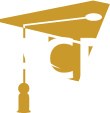Class of 2026 College Acceptance Letters Are Arriving: What Connecticut Families Need to Know
College acceptance letters for the Class of 2026 are starting to land in inboxes and applicant portals, and families across Connecticut are asking the same questions: When will decisions come out, what are the trends this year, and what should we do next?
At Advanced College Planning, we support families throughout West Hartford, Glastonbury, Farmington, Avon, Simsbury, East Hampton, Fairfield, Shelton, Trumbull, Wethersfield, Rocky Hill, Burlington, Berlin, and Cromwell with admissions planning, financial aid strategy, and next-step decision guidance.
When Do Class of 2026 Acceptance Letters Come Out?
Decision timing varies by college and by decision plan. As a general rule:
- Early Action: applications are commonly due in early November, with decisions released by late January.
- Regular Decision: deadlines are often in January, with decisions released by late March.
The Common App’s applicant support guidance explains typical Early Action and Regular Decision timelines and release windows.
Source: Common App Applicant Support (Decision Plans)
Connecticut tip: Encourage students to check portals (not just email). Some colleges post decisions in the portal first, and emails can arrive later or get filtered.
Admissions Trends Affecting the Class of 2026
1) More Students Are Applying (and Submitting More Applications)
One reason acceptance letters can feel more unpredictable is simple: application volume has increased. In the Common App’s End of Season Report for 2024–25, Common App reported:
- 1,498,199 distinct first-year applicants (up 5% from 2023–24)
- Total application volume up 8%, surpassing 10 million applications for the first time
- Applicants submitted an average of 6.80 applications per applicant (up from 6.64)
That means students everywhere—including highly engaged communities like West Hartford, Farmington, Avon, Simsbury, Fairfield, and Trumbull—are competing in a system where many peers are applying to more schools than ever.
Source: Common App End of Season Report 2024–25 (PDF)
2) “Acceptance” Is Only Step One—Cost Matters More Than Ever
Once a student is admitted, the next question is affordability. The College Board reports that for 2024–25, average published tuition and fees (inflation-adjusted) were about:
- $11,610 for public four-year in-state tuition and fees (average)
- $43,350 for private nonprofit four-year tuition and fees (average)
These are published prices (not your final net cost), but they help explain why families in Glastonbury, Wethersfield, Rocky Hill, Berlin, Cromwell, Burlington, Shelton, and East Hampton often need to compare offers carefully and plan strategically.
Source: College Board, Trends in College Pricing and Student Aid 2024 (PDF)
For a federal snapshot of college cost trends, NCES also publishes national “Fast Facts” on tuition and total cost of attendance.
Source: NCES (U.S. Department of Education) Fast Facts: Tuition Costs
What Connecticut Families Should Do Right Now
As Class of 2026 decisions arrive, here are high-impact steps that help families stay calm and make better decisions:
- Create a decision tracker: list each school, deadline, deposit date, and scholarship/aid notes.
- Compare “net cost,” not just scholarships: look at total cost minus grants/scholarships (and note loans/work-study separately).
- Watch key dates: merit scholarship deadlines and housing deposits can come quickly after acceptance.
- Plan next steps early: if offers vary widely, you may have options to request reconsideration based on competing offers or updated circumstances.
Serving Connecticut Families in West Hartford, Glastonbury, Farmington, Avon & Beyond
Advanced College Planning works with Connecticut families across West Hartford, Glastonbury, Farmington, Avon, Simsbury, East Hampton, Fairfield, Shelton, Trumbull, Wethersfield, Rocky Hill, Burlington, Berlin, and Cromwell to:
- Interpret acceptance letters and portal updates
- Compare financial aid packages in a clear, apples-to-apples format
- Build a realistic plan to pay for college
- Identify when (and how) to take next steps with financial aid offices
Need Help Making Sense of Class of 2026 Decisions?
If your family is reviewing Class of 2026 acceptances and financial aid offers and wants clarity, we’re here to help.
Website: AdvancedCollegePlanning.net
Phone: 860-721-6110






